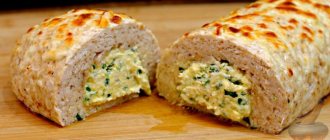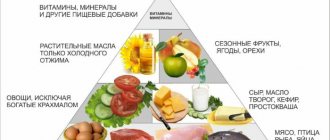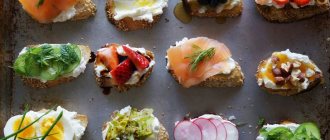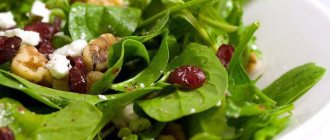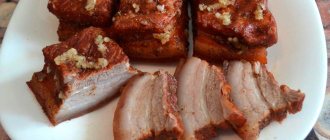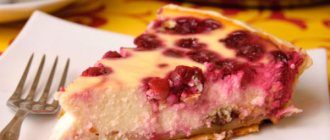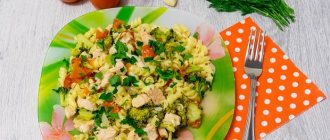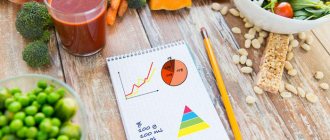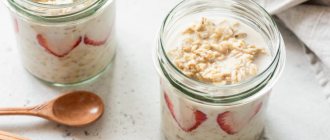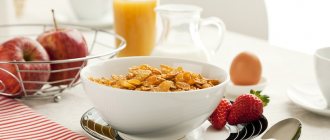Not all people treat breakfast with due attention. Some people don’t have time to have breakfast due to their busy schedule and limit themselves to a cup of tea or coffee. Others suffer from lack of appetite in the morning and force themselves to eat or don’t eat breakfast at all. Without morning meals, the body does not receive the necessary energy to function fully throughout the day. You can’t completely give up breakfast, but you also need to choose healthy and nutritious foods for it.
How is breakfast good for the body?
Morning hours are the best time to get energy reserves for the whole day. Its deficiency can be compensated for by later meals, but they will not be able to normalize metabolism. Giving up breakfast for the purpose of losing weight or maintaining weight is pointless. This will have the opposite effect. Carbohydrate-rich and high-energy foods are absorbed better in the morning, helping to reduce appetite and maintain a feeling of fullness for a long time.
Morning meals have a beneficial effect on well-being and health:
- accelerate the metabolic process by an average of 5%;
- normalize cholesterol levels;
- prevent platelet aggregation (sticking together);
- reduce the risks of strokes and heart attacks.
People who do not skip breakfast are significantly less likely to suffer from diabetes, high blood pressure, and gallstones.
Eating in the morning gives a boost of energy and vigor, relieves drowsiness and apathy, and lifts your spirits. Breakfast stimulates a person’s intellectual abilities, increases attentiveness and concentration.
Calculation rules
The healthy principle of “eating like breathing” suggests sensible nutrition at will. You shouldn’t cram extra “fuel” into yourself if you have an exorbitant desire to gain relief in a month. Most likely, it will become unwanted fat or simply go away, additionally taking energy from the body for digestion.
The quantity and quality of protein consumed varies depending on the season. Try to regularly eat a lot of meat in the hot summer - you will turn into a sweating mountain of muscles. But if you give preference to plant proteins, there will be no such problem.
But you will have to count calories. This causes some difficulties at first. Then it is calculated automatically, for example: one meat schnitzel the size of a large palm (300 g) - about 600 kcal, fish - half as much, a mound of porridge (200 g) - up to 400, a glass of milk - only 120, a tablespoon of butter or vegetable oil (25 g) - 200–230 kcal. It is not recommended to replace a full breakfast with gainers and proteins. There are many delicious recipes for high-calorie meals for bodybuilders that any ordinary person will envy.
Why don't you want to have breakfast in the morning?
Lack of appetite in the morning is often accompanied by a feeling that the stomach is full. My health also leaves much to be desired. Apathy, drowsiness and fatigue are the result of low blood sugar levels in the morning. All this is caused not by the individual characteristics of the body, but by the lack of proper nutrition and proper rest.
Eating food before bed does not allow the digestive tract to rest. To digest the food eaten, the stomach does not stop working at night. This entails a feeling of morning satiety. Such a eating habit is a violation of the basics of a proper diet and entails negative consequences for health.
Overeating at night is largely due to the existing misconception that the energy accumulated at dinner is stored and spent the next morning, and breakfast contributes to excess weight gain. Everything happens the other way around. Food eaten before bed turns into fat deposits, and breakfast is perfectly absorbed by the body and gives the necessary boost of energy. And to regain your appetite in the morning, you need to reconsider your eating habits.
What are the consequences of skipping breakfast?
The cause of global obesity, according to scientists, is neglect of eating in the morning. People who don't eat breakfast gain 3-5 kg annually. This is not so noticeable at an early age and adolescence, but over the years it makes itself felt. From 35 to 50 years of age, the habit of not having breakfast in the morning leads to obesity and its characteristic health problems.
Skipping breakfast can cause the following consequences:
- The risk of heart attack and death from coronary disease in men increases by 25%;
- By the age of 40, the degree of excess weight in women can range from 5 to 20 kg;
- The risk of developing cholelithiasis and type II diabetes mellitus increases for both sexes;
- Both men and women experience a decrease in labor activity and the ability to think logically.
Yogurt-apple parfait “5 minutes”
Instant Yogurt Apple Parfait is a great idea for a healthy sports breakfast during the cold season. But to quickly prepare this dish in 5 minutes, you will need a microwave oven.
Ingredients:
- large apple - 1 pc.;
- yogurt without flavoring, berries or fruits - 100 ml;
- water - 3 tbsp. l.;
- crushed nuts - 10–20 g (1–2 tbsp.);
- ground cinnamon - 1/8 tsp.
To increase the protein macro component of your breakfast, add 1 scoop of OPTIMUM NUTRITION 100% WHEY GOLD STANDARD “Vanilla Ice Cream” protein powder to the yogurt-apple parfait, and if you are drying out or losing weight, add a serving of BPI SPORTS KETO BOMB or 40 g of POWER PRO FEMINE-PRO.
Preparation:
- The apple is peeled, cut into 4 slices, cored, and cut into 1 x 1 cm cubes.
- Apple cubes are sprinkled with cinnamon, filled with water, and baked for 3 minutes in a microwave oven.
- The resulting applesauce is mixed with protein powder, yogurt, and sprinkled with crushed nuts.
Did your morning workout or exercise take a lot of energy? Then wash down the parfait with a protein shake flavored with vanilla milk, milk chocolate or strawberry.
What foods are not recommended for breakfast?
Not every breakfast is healthy. The choice of products for the morning menu must be approached thoroughly. Sandwiches with coffee and tea are not the best replacement for fruit salads and cereals. They and other traditionally eaten breakfast foods provide virtually no benefit.
There are a number of foods that are not recommended for breakfast by nutritionists. These include:
- Sausage, sausages, bacon.
These meat products contain large amounts of nitrates, salt and other chemicals. Experts advise replacing them with chicken or turkey meat.
- Breakfast cereals.
Ready-made breakfasts contain not only plant fiber, but also abound in “fast” carbohydrates - sugar. The feeling of fullness after a dry breakfast is quickly replaced by hunger. To avoid this, you should eat whole grains, for example, muesli filled with kefir with nuts and fruits.
- Donuts and pancakes.
The fast carbohydrates contained in these products contribute to the formation of fat deposits from excess sugar and are not good for your figure. When they are consumed, heaviness appears in the stomach.
- Yogurts from the store.
The yoghurts presented on supermarket shelves contain preservatives, sweeteners, and flavorings. It is recommended to prepare fermented milk products for the morning meal yourself. If this is not possible, yogurt should be replaced with kefir.
- Cottage cheese.
This healthy and protein-rich product is not suitable for breakfast. It is recommended to eat it not in the morning, but in the afternoon.
- Citrus.
Tangerines and oranges consumed on an empty stomach can provoke allergies and lead to the development of gastritis.
- Bananas.
If you eat bananas containing excess magnesium in the morning, this can disrupt the internal balance of the body. Bananas should not be consumed for breakfast, but in the afternoon.
- Canned foods, smoked meats.
- Sweets and tea with sugar.
The calorie content and nutritional value of the morning meal are selected individually. Carbohydrate-rich and light breakfasts are necessary for people with intellectual work; protein-rich and high-calorie breakfasts are recommended for those who do physical work.
What to eat before your morning workout?
When deciding what to eat before your morning workout, consider the following questions:
- How long do you have before training?
- What exercises are you planning to do and at what intensity?
- How long will your workout last?
You may have heard a lot of different recommendations on how to eat breakfast properly. There are many recommendations, and they are all different, because people are different. Some people feel sluggish if they eat a lot, others claim that if they don't eat something filling and heavy, they get stomach cramps. However, if you answer all three questions above, you can easily choose the best breakfast for you that will energize you for your workouts.
When you exercise, your body focuses on fueling the muscles involved rather than on digestion, so eating a large, heavy meal immediately before an intense workout can trigger abdominal pain. Don’t overdo it, the main thing is to charge your body with useful “fuel”.
How long do you have before training?
The time you have before starting your workout is important. If you plan to do a serious cardio workout within the next twenty minutes, you won't eat a big, hearty breakfast. If possible, try to wake up an hour before your workout so you have enough time to eat a small snack and drink enough water. If you plan to get to the gym in two or three hours, you can afford a heavier meal.
What exercises are you planning to do and at what intensity?
There are several important points here that can influence the choice of the best breakfast. So, if you're planning a long-term aerobic cardio workout, you'll want to focus on high-quality carbohydrates as your main food group. If you're going to do a short strength exercise or HIIT workout, there's no need to fuel yourself for a long time. Are you planning something in between these two workouts? Then try a few different options and see which one makes you feel better.
How long will your workout last?
If you know your gym workout will take no more than thirty minutes, you'll likely only need small meals to maintain your energy. If you're training for a marathon and doing a long run, you'll also need to plan your food intake DURING your workout.
Healthy Breakfast Basics
The recipe for a healthy and proper breakfast is simple. His menu should consist of easily digestible foods high in microelements and vitamins. The calorie content of the morning meal should be 40% of the daily diet, that is, from 360 to 500 kcal. It is necessary not only to count the calorie content of foods, but also to correlate food with the individual needs of the body.
Benefits for breakfast are:
- eggs containing proteins and other beneficial substances;
- nourishing, protein-rich, virtually devoid of carbohydrates, figure-friendly chicken meat;
- bran and rye bread, whole grain flour products;
- Honey, rich in natural antiseptics, beneficial substances, carbohydrates, relieves fatigue and stress;
- cereal porridges that provide a long feeling of satiety;
- kefir and green tea.
Lovers of invigorating coffee do not have to give it up completely, but they should limit their consumption of the drink. It is recommended to drink no more than one cup of coffee for breakfast. This is approximately 50-70 g, but no more.
Recommendations and advice from nutritionists:
- To ensure that breakfast is not a burden and brings pleasure, you need to reschedule dinner and not overeat at night. This will allow you to feel a slight feeling of hunger in the morning.
- It doesn't take much time to prepare an easy and healthy breakfast. It is enough to get up in the morning 15 minutes earlier than usual.
- Coffee should be drunk after meals. On an empty stomach, this drink irritates the mucous membranes and can cause gastritis.
- Breakfasts should be turned into a full meal.
If a person has never had breakfast before, it is impossible to rebuild the body in one day. It is necessary to accustom yourself to a new habit gradually. It is better to start with a light snack, and then gradually increase the calorie content of breakfast.
Paleo fitness oatmeal
Regardless of where you stand on the paleo diet, paleo oatmeal is a great option for your first or second, grain-free breakfast.
Ingredients:
- ripe banana - ½ piece;
- almond flakes or flour - 2 tbsp. l.;
- coconut flakes - 2 tbsp. l.;
- almond/coconut milk - 70–100 ml;
- cinnamon - 1/4 tsp;
- salt - a pinch.
For paleo fitness oatmeal, you will also need 1 scoop (40 g) of POWER PRO PROTEIN OMEGA protein powder with Almond Cake flavor.
Preparation:
- In a microwave-safe bowl, mash the banana.
- Toss banana with flaked almonds or flour, coconut, cinnamon and salt.
- Pour almond or coconut milk over the mixture.
- Place the bowl in the microwave until it starts to bubble.
- After 3 minutes, add protein powder, stir, and bon appetit!
You can add nuts, seeds, ripe avocado cubes and/or even raw chicken or a few quail eggs to this basic recipe. And if you want your paleo fitness oatmeal to be sweeter, season it with sugar-free sweet syrup.
Carbohydrate and protein breakfasts
Carbohydrate-rich breakfast foods are recommended for knowledge workers. The ideal carbohydrate breakfast option is cereal porridge or muesli cooked in water. The menu can be diversified by adding nuts, fruits and natural juices to the muesli. Butter products and sweets are also rich in carbohydrates, but they are harmful to your figure. Cereals, on the contrary, help stabilize and maintain weight. You need to choose foods that contain carbohydrates so that the feeling of fullness is not accompanied by the desire to take a nap.
Proteins for breakfast are necessary for athletes who move actively during the working day or people engaged in heavy physical activity. A classic English breakfast is an excellent source of protein. You don't have to stick with the traditional omelet. It can be varied with prepared vegetables and chicken. There is no need to give up carbohydrates completely. A small piece of whole grain bread and a slice of cheese will provide the carbohydrates required for full physical activity.
Denis Semenikhin. Sports breakfast to go
Protein smoothie
This tasty, nutritious and minimalistic snack option can be included in the menu of any diet, at any time of the day and/or after training. When gaining weight, add more nut butter, and when cutting or losing weight, add more ice, herbs, berries, and replace regular whole milk with almond or coconut milk. The options are limited only by your imagination, we offer the following.
Add the following ingredients directly to the blender:
- milk - 200 ml;
- frozen assorted berries - 200 ml;
- frozen banana, cut into pieces - ½ piece;
- peanut butter or paste - 1 tbsp. l.;
- protein powder SCITEC NUTRITION 100% WHEY ISOLATE - 40 g;
- crushed ice - 100–200 ml.
Blend the smoothie at the highest speed of the blender and enjoy!
